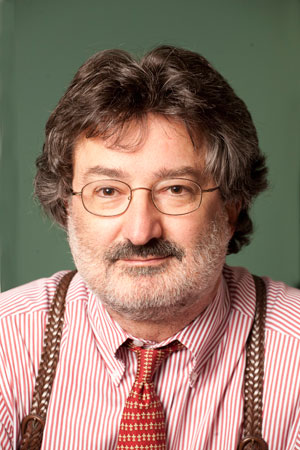Calling one aspect of the disciplinary decision against him “an absurd result” and “an error of law that urgently requires correction,” Joe Groia today filed his notice of appeal of last month’s civility
ruling against him by the Law Society of Upper Canada.

In his notice, Groia is asking to set aside the June 28
finding of professional misconduct against him in relation to his handling of the defence of former Bre-X Minerals Ltd. vice chairman John Felderhof on allegation of insider trading and issuing false or misleading statements. Those proceedings, which featured fierce legal debates between Groia and prosecutors for the Ontario Securities Commission, resulted in critical judicial comment in obiter against Groia that sparked the law society’s disciplinary action for incivility.
Among his criticisms of the LSUC ruling, Groia counters the law society’s assertions that he was attempting to relitigate allegations made against him during those earlier court proceedings by trying to defend himself against the charges of professional misconduct. The hearing panel, the notice of application asserts, acknowledged that Groia wasn’t actually a party to those earlier court proceedings since they related to Felderhof’s trial.
The panel, he alleges, “made a serious error of law by creating a new and unprecedented basis for its finding that there would be an abuse of process if the lawyer was permitted to defend the allegations in this proceeding,” the appeal notice states.
“It created a new and unprecedented legal fiction of a ‘party in substance.’ In effect, the panel concluded that the lawyer, as a ‘party in substance,’ was abusively relitigating the issues that had been before the courts by defending himself in these proceedings. This conclusion resulted in the failure of the panel to consider and give effect to the defence mounted by the lawyer and was a failure of natural justice.”
As a result, the appeal notice alleges, the panel assumed Groia had the right to appeal the court rulings at the Supreme Court of Canada and that he should have done so even though it would have placed him in a conflict of interest in relation to his client.
“This is an absurd result and is an error of law that urgently requires correction,” the notice states.
Among other criticisms, the notice alleges deficiencies in the way law society staff handled the case and takes several shots at the hearing panel.
“Just as the law society staff did not read the transcripts before charging the lawyer, the panel appears to have primarily cut and pasted their reasons from the factum of the law society and the decisions of [late] justice [Archie] Campbell and [Ontario Court of Appeal] Justice [Marc] Rosenberg. Almost none of the lawyer’s evidence about the conduct of the Felderhof trial was considered in the reasons. The reasons could have been written before the hearing began.”
The notice also makes repeated reference to the broader issue of civility versus lawyers’ duty to defend their clients with vigour. It raises alarm, for example, about the panel’s finding that, as an officer of the court, he had an overriding duty to ensure trial took place fairly and efficiently and in an atmosphere of calm.
“The lawyer had no such ‘overriding’ duty, nor does any counsel,” the appeal notice asserts. “There can be no more alarming statement than for a law society to suggest that there is now an overriding duty on any defence counsel to sacrifice his or her client’s substantive or procedural rights on the altar of ‘efficiency’ and calmness.’”
Groia is seeking four results from the appeal: dismissal of the LSUC’s 2009 notice of application against him; an order that he didn’t engage in professional misconduct; that a new hearing take place in the alternative before a different panel; and costs to him.

 In his notice, Groia is asking to set aside the June 28 finding of professional misconduct against him in relation to his handling of the defence of former Bre-X Minerals Ltd. vice chairman John Felderhof on allegation of insider trading and issuing false or misleading statements. Those proceedings, which featured fierce legal debates between Groia and prosecutors for the Ontario Securities Commission, resulted in critical judicial comment in obiter against Groia that sparked the law society’s disciplinary action for incivility.
In his notice, Groia is asking to set aside the June 28 finding of professional misconduct against him in relation to his handling of the defence of former Bre-X Minerals Ltd. vice chairman John Felderhof on allegation of insider trading and issuing false or misleading statements. Those proceedings, which featured fierce legal debates between Groia and prosecutors for the Ontario Securities Commission, resulted in critical judicial comment in obiter against Groia that sparked the law society’s disciplinary action for incivility.